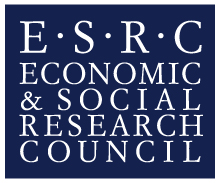
From education to ecology, field trials are integral to academic research. Trials are now used across UK government to test the efficacy and cost-effectiveness of a range of policy initiatives, from homelessness to tax returns. The ESRC Impact Acceleration Account enabled Dr Riikka Hofmann to join the Cross-Government Trial Advice Panel – an experience which has influenced her career and shaped government policy.
Today, Dr Riikka Hofmann is an established researcher and a University Lecturer in the Faculty of Education, where she leads a group investigating leadership and professional change. But it was in 2014, while still a postdoctoral researcher, that she spotted a Cabinet Office advertisement inviting applications for a brand new initiative called the Cross-Government Trial Advice Panel.
The Cabinet Office was establishing a panel of leading experts from government and academia to help civil servants design robust trials to test potential new policies. Hofmann, who had spent five years working on a large ESRC-funded field trial testing new ways of improving secondary students’ learning and engagement with maths and science, believed she had valuable skills to offer.
“Lots of academics have worked with policy makers in the past, and many governments use academic evidence to inform policy, but using academics to advise on policy trial design in such a centralised, systematic fashion was very innovative,” she recalls. “Academics have a lot of tacit knowledge that has not been shared before, so even though I wasn’t in an established post at the time, I felt I had something important to contribute.”
When Hofmann was invited to join the panel, she used the ESRC Impact Acceleration Account (IAA) to fund her time and travel costs and over the past four years has advised on a diverse range of policy trials across government, from HM Revenue & Customs and the Ministry of Housing, Communities & Local Government to the Department of Health & Social Care and HM Treasury.
The highest profile trial she’s advised on was former Prime Minister David Cameron’s initiative on cohesive communities. The trial, which involved reducing barriers to integration by improving access to English language classes for women in isolated, immigrant communities, showed that relatively small language interventions made these women more likely to get involved in local activities. The trial was nominated for a Civil Service Use of Evidence Award and fed into the government’s 2018 Integrated communities strategy green paper.
Being involved in the panel has, says Hofmann, had a positive impact on the Faculty of Education as well as government policy: “As academics, we often question how much our work matters, so having an impact on policy and professional learning in the Civil Service is really rewarding. It’s shown me that Education research has wide benefits, given me a valuable insight into how policy making works, as well as new relationships. Sharing that with colleagues brings broader benefits to the Faculty.”
The experience was also useful in helping her secure a lectureship at Cambridge. “I think it helped set me apart in a high-calibre field, because I could talk about how academics can have impact and how we can work effectively with government,” she says.
Over the past four years, her work with the panel has led to wider involvement in Whitehall, including mentoring on the Future Leaders’ Scheme – the Civil Service’s leadership training programme, advising the Cabinet Office on the learning curriculum across the Civil Service, and making a teaching film on policy evaluation with the Cabinet Office’s What Works team.
“It’s a long story but one that shows how a relatively small amount of IAA funding can lead to a large amount of value,” she concludes. “In my experience, that’s in the nature of the IAA: it enables relationships and engagement that lead to so much more.”
Cross-Government Trial Advice Pane: Role and Membership
Cross-Government Trial Advice Panel: Update Report
Integrated Communities Strategy green paper
Experimental Government: What Works Film
| ESRC IAA Impact Fund Project: | Academic Secondment to the cross-Whitehall Trial Advice Panel |
| Project Investigator: |
Dr Riikka Hofmann (Faculty of Education) |
| Partner Organisations: | the Cabinet Office |
| Project duration: | July 2014 - December 2018 |

